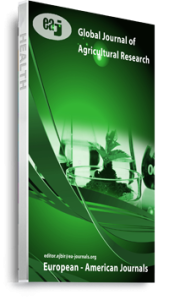Famers since history in agriculture use animal waste to conserve their soil and improve crop yield. A randomized complete block design (RCBD) was set up to study the effect of four (4) contrasting animal wastes on soil productivity and maize grain yield for two consecutive years in Igbariam soil south east Nigeria. The waste comprising of cow dung (CD), pig dropping (PGD), poultry droppings (PD) and goat droppings (GD) were applied at rate of 24kg/plot (equivalent to 20 tha-1) in the first year and their residual effect tested in the second year cropping. Results showed that application of animal wastes significantly (P < 0.05) enhanced the soil properties and yield parameters of maize tested, for the 2 years study. The immediate effect of animal wastes in improving the soil pH of the amended plots gave corresponding increases in the values recorded for the soil parameters tested with a reduction in bulk density relative to the control plot for two consecutive years of study. Maize grain yield showed highest value (3.54 tha-1) and plant height 163.9 cm in PD first year cropping but second year cropping result depicted PGD to record highest maize grain yield value (1.96 tha-1) among the other treatments. The findings from the study showed that the use of animal wastes in crop production system can improve the productivity of soil and increased crop yield.
Keywords: Animal waste, Grain Yield, Nutrient Elements, organic waste

